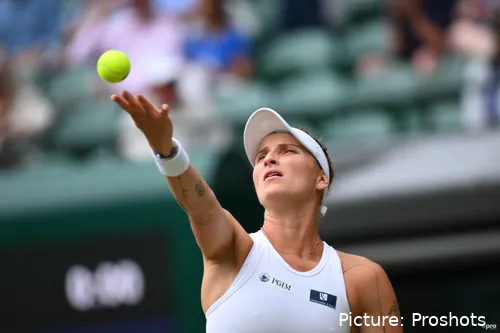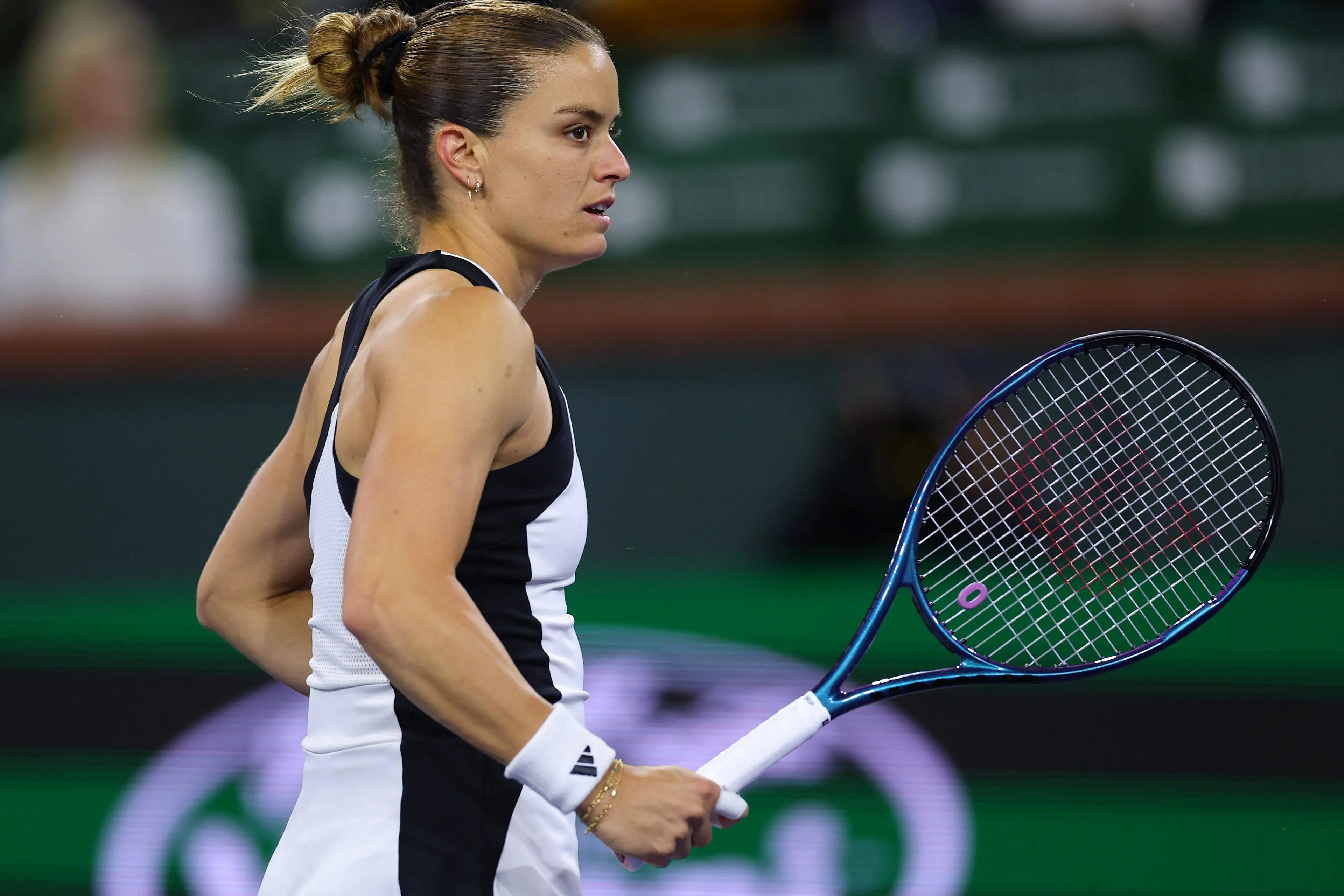COLUMN: London Calling for WTA Queen's Club return, but is pre-Wimbledon calendar now detrimental to tennis?
Tennis NewsThursday, 27 June 2024 at 14:45

The tennis world is currently in the midst of another grass court season that is predominantly played in Britain. There’s currently stops on the ATP Tour and WTA Tour in Nottingham, Eastbourne, London and Birmingham, all leading into the grass court Grand Slam at Wimbledon in South West London.
From 2025 however, the composition of the British grass court schedule is going to be altered to accommodate a WTA event at Queen’s Club in London where the ATP have been stopping off since the 1970s.
This addition of another event in the English capital leaves events in Birmingham and the idyllic Eastbourne suffering downgrades in their stature and profile. It’s the type of changes that plays into a London-centric attitude when it comes to hosting sport in the UK. Women last played at the Queen’s Club in 1973 and since then the premier warm-up event for Wimbledon in the UK has been the Eastbourne International.
Read also
This event which boasts fifty years of history will now be downgraded to 250 status so the new WTA event at Queen’s can be awarded the more prestigious 500 ranking tariff. Aside from the history of Eastbourne, an event won eleven times by the legendary Martina Navratilova, the ambient seaside location of Devonshire Park is popular in the week leading up to a Grand Slam.
Being demoted to 250 status will see a decline in prizemoney and places restrictions on how many top 30 players can be invited. The event currently receives network coverage on the nation’s state broadcaster, the BBC, as the men’s event at Queen’s does. A lesser field will probably see the BBC only broadcast the event on their digital platforms, reducing the tournament’s visibility.

Yulia Putintseva (pictured) won last week's Birmingham Classic but is unlikely to defend it.
Birmingham and Eastbourne big losers in change?
The biggest loser in this shake-up is arguably the Birmingham Classic event that sees the tournament reduced to challenger status, as opposed to its current 250 standing. The challenger tournament has been given a slot in the calendar that sees it clash with the second week of the French Open. The host venue, Edgbaston Priory Club, will now have a very difficult job of enticing spectators when the players on view will be significantly lower profile and tennis fans may well favour staying in to watch the clay court major.
An event that boasts a roll call of champions such as Maria Sharapova, Navratilova, Billie Jean King, Ash Barty, Petra Kvitova and Ana Ivanovic deserves better than being shunted into the grass court wilderness. The Nottingham Open, which will remain a WTA 250, remains unaffected despite a less illustrious history and past list of champions generally less prestigious. The main point of criticism opposing these changes is how the changes have been brought about by the addition of yet another tournament in London.

Marketa Vondrousova (pictured) won Wimbledon last year but with a move again to London for a big WTA tournament, is it too much?
Are too many tournaments based in London?
The city of Big Ben already hosts the third Grand Slam of the season and the men’s 500 at Queens. They also enjoyed a successful stint hosting the ATP Tour Finals (2009-2020) at the 02 Arena. For fans not able to access easily a trip to the capital and the ensuing high cost of visiting London, opportunities to watch top level tennis becomes reduced.
These changes mean no event above the 250 banding will be staged outside London. I found it disappointing that during the BBC’s coverage of the men’s event at Queens last week that when LTA Chief Executive Scott Lloyd was in the studio presenter Clare Balding failed to ask him about how a WTA 500 event at Queen’s impacts on other British grass court tournaments. She also didn’t mention reports suggesting that members of Queen’s Club were not consulted over the decision and are considering legal action.
The issue of equality has been cited as the justification for such changes but I’ve never subscribed to the idea that all events need to have a women’s and a men’s event. The WTA Tour product is a fantastic one witha significant global audience. Eastbourne was absolutely packed earlier for the match between Emma Raducanu and Sloane Stephens. Tickets in Birmingham, which doesn’t boast a men’s tournament, always sold well and the final invariably was a sell-out. These changes feed into a narrative within England of pandering to London when it comes to various aspects of how the country operates. In terms of sport so many pedigree events are held in the city.
Read also
Failure to mention legal action incoming
All three times Britain has hosted the Olympic Games it’s been held in London. The HQ of England’s three main national sporting teams – football, cricket and rugby union – are based in London. World Cup finals in all three sports have only taken place at Wembley, Lords and Twickenham when England has been tournament host. There have often been complaints in football about how the Three Lions fail to play enough matches around the nation.
The only edition of the World Athletics Championships held in Britain was in London. There’s clearly going to be a good number of events in Britain’smost populous city but at times it can feel as if not enough consideration to roughly the other 57 million people that are resident in the United Kingdom. These changes will be implemented from next year. The aforementioned legal action from Queen’s members could be a possible issue in the short-term but realistically if there’s to be any changes to this new schedule then it will rest on how successful the new WTA event at Queen’s proves to be. It’s currently positioned immediately after the French Open.
That’s a precarious slot as a number of original entrants could pull out due to injuries or mental exertion suffered in Paris. Weeks after Grand Slams are often played without too many leading players being active. The pricing at swanky location such as Queen’s club is inevitably going to be high. Many members or potential spectators may prioritise attending the historic men’s event that stretches back to 1890.
I suspect the BBC, who enjoy an excellent relationship with the Queen’s Club, will opt to cover it but poor crowds wouldn’t play out well on television. London is calling for now but we’ve seen plenty of shake-ups before to the British grass court calendar that all hope may not be lost for Eastbourne and Birmingham to see their events restored to former glories.
COLUMN Written by Jay Brannon for TennisUpToDate
claps 0visitors 0
Just In
Popular News
Latest Comments
- You seem to have 'lost the plot' ??
- This needs to be done, and I think Jessica Pegula is an excellent choice for chair to look into the situation. However, a very brief look at the other members of the panel would suggest a very USA heavy contingent. The group needs to represent all interests, not just turn it into a way the US can screw more money out of an already biased calendar.
- The tennis world should be kissing her feet for taking-on this long needed position in a much needed council. The WTA and ATP need a good shaking-up. Pegula's business heritage is a proven one. Let's hope she and her colleagues can stop WTA & ATP from shutting their work down and out. GO GET 'EM !!
- So the Sportswasher's largest market is... the Filipino community? That's all well and good but the hundreds and hundreds of empty seats throughout is embarrassing. Talk about bad optics!
- The poor Head Sportswasher has been whining and crying in the media, and basically threatening Saba, Iga, etc. Must be a real Ego Buster when they dangle money and people (especially Women) say, 'No thanks'.
- "Losing-itis" is not uncommon in Emma's small world. Just keeps begging the question, 'What are sponsors paying for? Limited tennis appearances... or Social Selfie Media presence?'
- Dubai can suck it up like everyone else. Just because they think they run the show, they do not. Sportswashing does not give them Power.
- You're losing your mind here.. You use a lot of space, yet inadequate knowledge. Read the WTA Rule Book 2026; it answers all your questions and accusations.
- Why single out Iga and Aryna to punish?, Since when do players get punish because they withdraw from tournaments? Maybe if they both were treated like number one and two players, they would not have this problem. The WTA discriminates against them because of their nationalities, yet they want to make money off them. Every tournament, Iga has harder draws than qualifiers from the beginning to the end. In the Australian Open they stuck Aryna out in the sun the majority of her matches in order to tire her out. She is the number one player in the world and she never got the opportunity to play with the roof closed. If they want these top players to continue playing and making money for them, then they should treat them as such. Otherwise, get the players who they are always giving out cupcake draws to like Pegula to play their tournaments. Lets see how many seats in the audience she will fill. Iga has more fans in the seats than any player in the WTA, yet she is always disrespected and mistreated because of her nationality. The WTA is a corrupt, bias and racist organization. No matter what job someone is on, you cannot tell them that they are not sick or injured.
- LOL. Billie Jean King hates being a woman.
Loading









